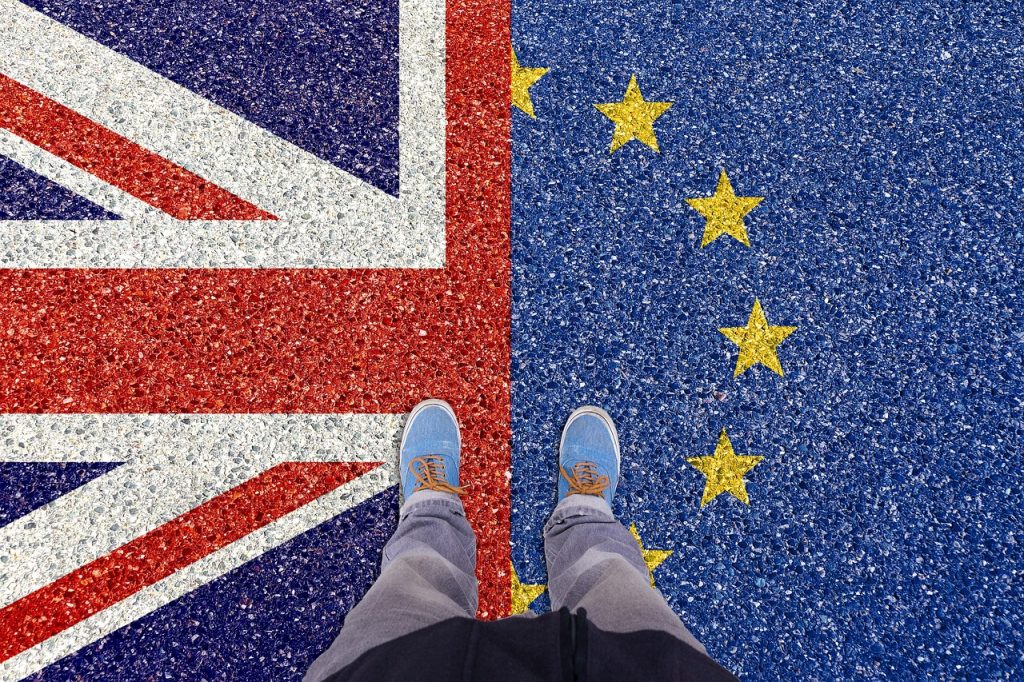
The world is on fire. Transnational cooperation is the key ingredient to tackling the existential challenges that humanity faces — first and foremost, this is the climate crisis. Brexit was a watershed moment as it implied a rejection of the institutionalized form of transnational cooperation that is incarnated in the European Union. Despite the political reality of Brexit, it is imperative to recognize that this threat to the global commons is tackled as a shared effort and a moral responsibility of the Western World.
A key part of my research journey takes me to understanding the origins of Brexit, the role that domestic UK policy choices had — the role that evidence plays in shaping such policy choices — and invariably, studying the economic and social effects of Brexit. And yes: this has become somewhat personal in 2022 when I was awarded a European Research Council Starting Grant. Brexit and the UK’s continued struggles in redefining its relationship with the EU has put my personal and life plans again into disarray. I hope that the spirit of cooperation prevails — scientific cooperation is a key part to fostering mutual understanding and knowledge generation.
Research Output
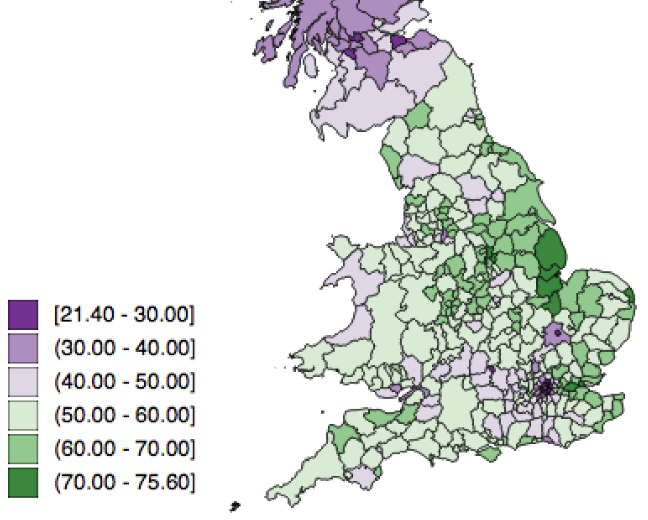
Who voted for Brexit? Evidence from a comprehensive district level dataset, with Sascha Becker and Dennis Novy, in Economic Policy, Volume 32, Issue 92, October 2017, Pages 601–650.
🔓 Open access
Selected broader coverage: The Guardian, El Diario, Indy 100, Folha de S.Paulo, The Canary, Le Monde, The Economist, Modkraft, New York Times.
Non-technical summary: LSE Politics, VoxEU
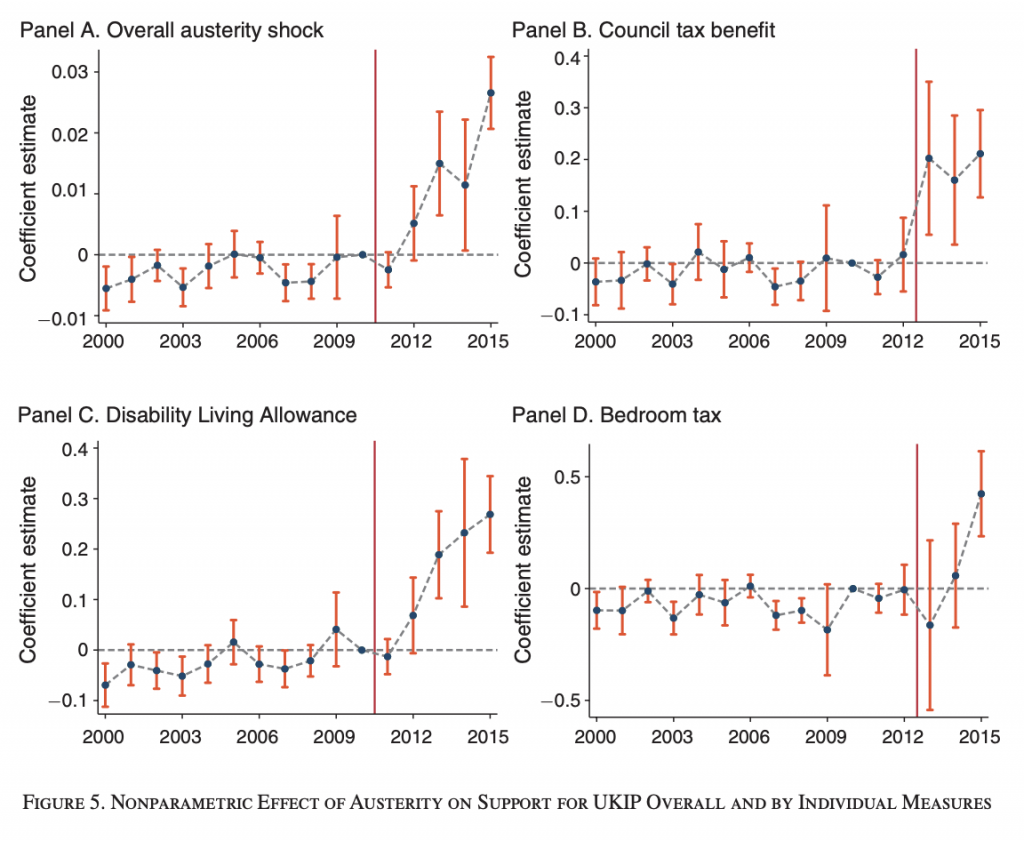
Did Austerity Cause Brexit?, American Economic Review,Volume 109, Issue 11, November 2019, Pages 3849-86, 🔓 Open access
⌨️ Blog post
Selected broader coverage: Bloomberg, Brookings, Financial Times, Frankfurter Allgemeine Zeitung, Foreign Policy, The Guardian, The Herald, The London Economic, The National, Holyrood, Huffington Post, Independent, iNews, Le Monde, New York Times, Spiegel Online, The Times, Wall Street Journal (1) Zeit Online.
Non-technical summaries: Harvard Business Review, LSE Brexit, LSE Brexit (2), VoxEU, INET, Social Market Foundation, UK in a Changing Europe, The Conversation.
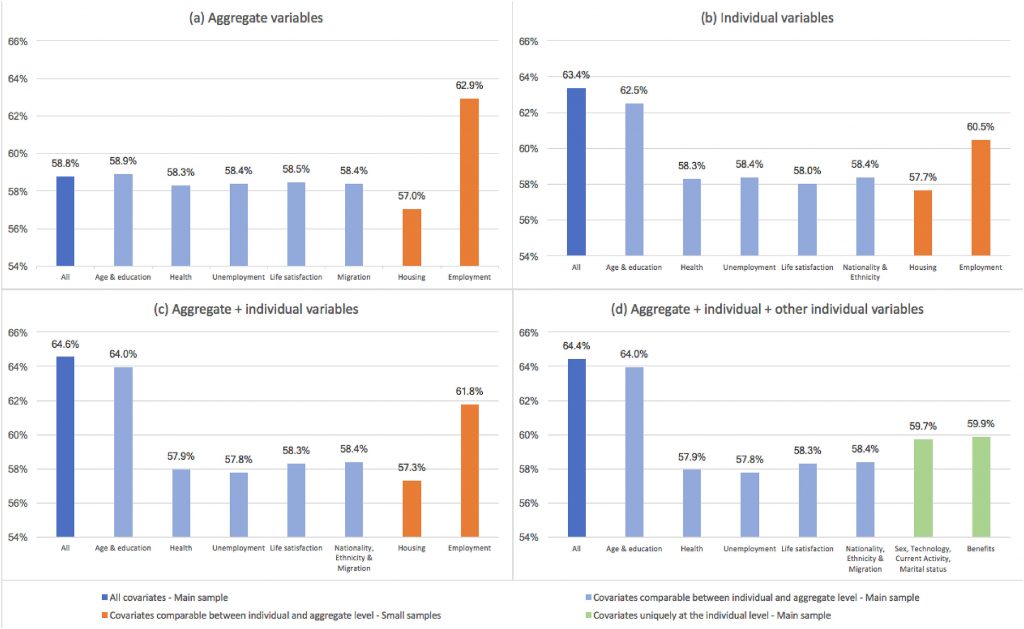
Who Voted for Brexit? Individual and Regional Data Combined, joint with Eleonora Alabrese, Sascha Becker and Dennis Novy, European Journal of Political Economy, Volume 56, January 2019, Pages 132-150, 🔓 Open access.
⌨️ Blog post
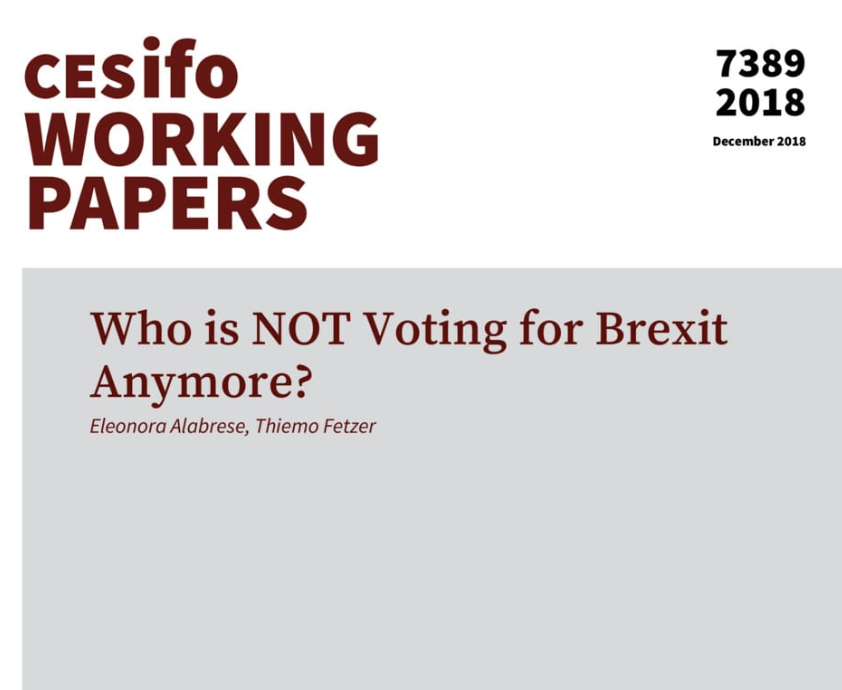
Who is NOT voting for Brexit anymore?, with Eleonora Alabrese, CAGE and CESifo working paper,🔓 Open access
Selected broader coverage: Business Insider, Grazia, The Independent, New York Times, The Irish Times.
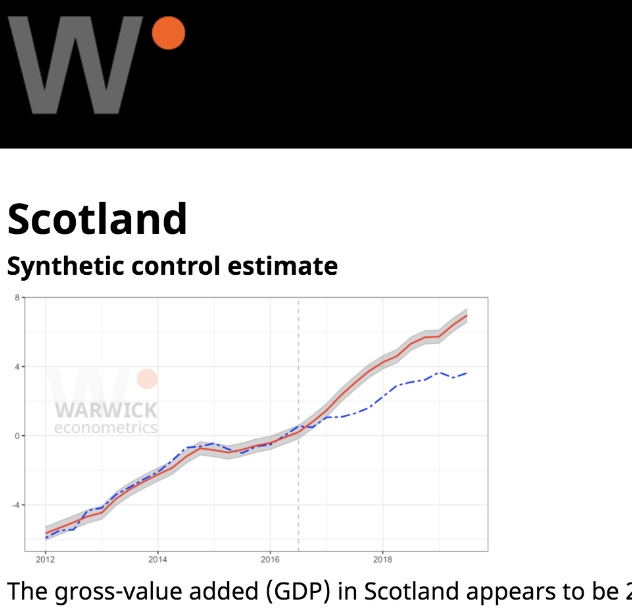
Measuring the Regional Economic Cost of Brexit: Evidence up to 2019, joint with Shizhuo Wang, 2020, CAGE Working Paper, 🔓 Open access
Broader coverage: Financial Times, The Independent, Press and Journal, The Courier, Evening Express, Midlothian Review, ShetlandNews, Graeme Dey, SNP Galloway.
Interactive visualization: www.brexitcost.org
Impact
The paper on the role that austerity had in bringing about Brexit has been influential in shaping the narrative and understanding around the cause of Brexit. The vote was, for many, a protest against the status quo that has seen growing spatial and inter-group inequalities. Austerity was an important factor that played a role in shaping an anti-status quo sentiment. It was further enabled by the use of new technology, social media and the malign foreign interference.
I spend a lot of time speaking with journalists, artists and one other civil society groups to walk them through my work. One instance was with the popular character Jonathan Pie. I spend a whole afternoon with him explaining my work and, well, also sharing my own experience around Brexit. He recorded our 3h long conversation and I think this was an important source of inspiration for one of his very successful rants that he delivered in his original style and tone on Youtube and Facebook video. The video has, too date, had more than 6.1 million views.
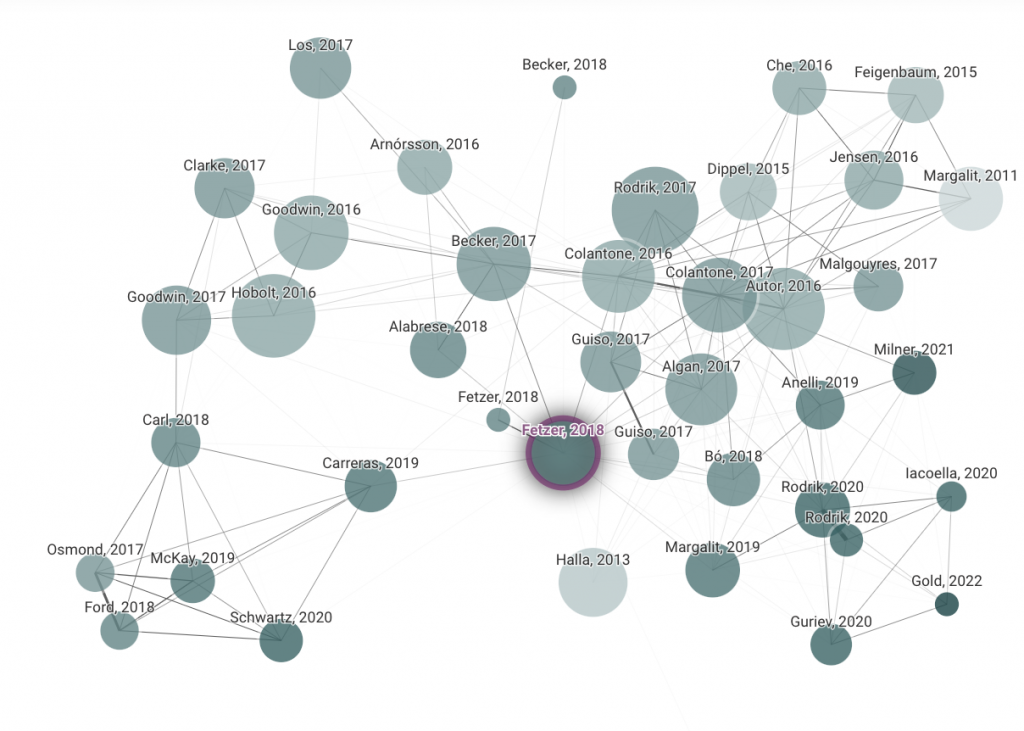
Personal Impact
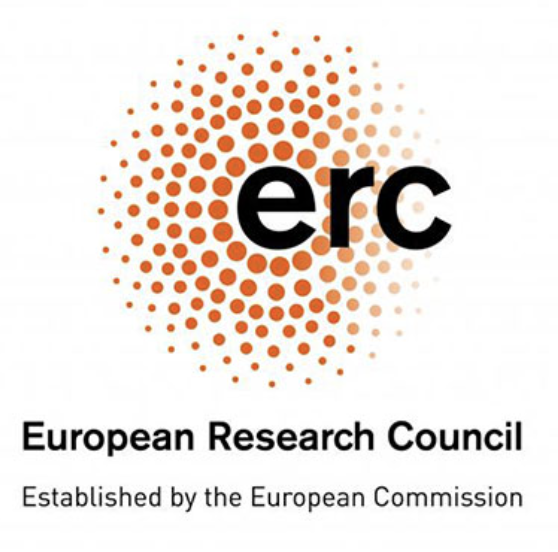
In 2022, I won one of the prestigious European Research Council Starting grants. These are denominated around 1.5 million Euros. They are among the most prestigious and most competitive research grants. But of course, despite Brexit becoming political reality, the ensuing renegotiation of the “oven ready” Brexit deal resulted in the UK’s association with the Horizon Europe agreement to cause my European Research Council grant to be “held up”. I have subsequently given a few interviews to explain the situation. Science cooperation is vital to our shared prosperity and to progress in the human condition.
As a European, for me the UK is as much home as Germany, and within the UK, London has a special place in my heart. There are many more things that unite us, then that divide us and the importance of transnational cooperation in the wake of the climate crisis is too important. We need to think outside the box and outside the boundaries of the state to tackle problems that explicitly transcend the boundaries of the state. This is what my ERC proposal promises to study. And I am a firm believer that both, the UK, Europe, Germany — that we can learn from one another to ensure shared prosperity. As an outsider to the political negotiations, the breakdown of international scientific collaboration — for me, was an important factor that led me to reconsider my place in the UK. It is hard to be home in London, but also, to be somewhat alien in either countries. But does this mean that immigration is the problem, given an aging society? I do think we could all do more by talking more with each other then to talk about one another. Given the uncertainty and the risk of becoming a second tier resident in the UK following Brexit I made sure to open an exit door for myself.
Thiemo Fetzer, a professor of economics at the University of Warwick who was approved for €1.5m (£1.28m) of funding for research into media and geopolitics, confirmed he was one of the 18 who had reluctantly decided to move to the EU.
He said: “I am relieved as this whole Brexit process has eroded my trust in the UK’s institutions and this Horizon Europe association was just another incarnation of this.
“I take some comfort knowing that with the ERC being hosted at a great place in Europe I am also developing an exit strategy from the UK like many other academics from the EU I know. I really fear that the UK is going down a very dark path and there is a Germany in the 1930s feeling to all.”
Thiemo Fetzer as quoted in The Guardian